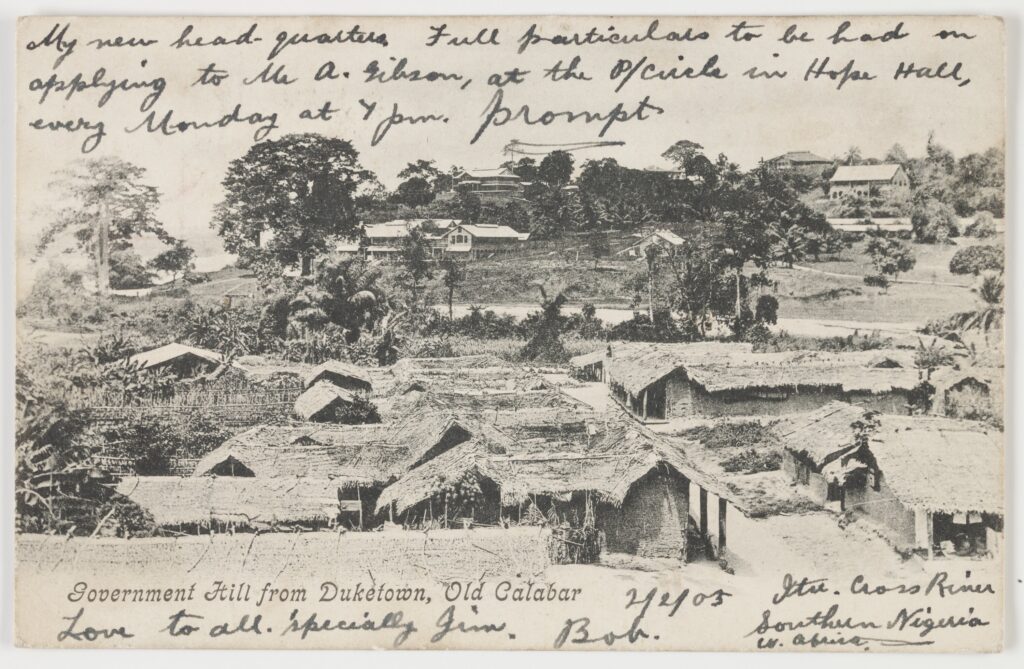As one enters the website, you may see a sign fly across the front page of the cover picture. That sign is actually a word in Nsibidi(Nsibiri) script, which says Nsibidi(Nsibiri). Originally of southeastern Nigerian(specifically Ejagham) origin, certain characters of the script have gone on to become the expression of many in the region, especially when it comes down to love. Most importantly, it was also monopolized by the Ekpe society, a powerful fraternity which was engrossed in the economic free market enterprises of specific Igbo, Ibibio, Ejagham & Efik peoples living collectively near the Cross River of today’s Nigeria. Ekpe means leopard in their many dialects & it referred to the invisible forest spirit, stealthy, able to avoid anyone in its midst and very secretive. Humans were able to catch it & manipulate it to their advantage but it was still a fairly slippery and trickster spirit. Its powers usually coincided with the spiritual head Ndem Efik , who was the guardian of the water serpent god. Thus, these “leopard societies” assisted in uniting the community under a supernatural force which was nowhere to be seen. Masquerades exemplified the power of the spirit and villagers/commoners assisted in the display of such mysteries shrouded in its being. There are many times, even today in southeastern Nigeria, where people who are whipped by the masquerade deity of Egbo(Ekpe) are seen to be inflicted with bad luck as it is a “bad omen”.
The Obong named Ambo purchased the secrets of Ekpe around the year 1720. These secrets guaranteed the monopoly of Ekpe within the fraternity. This payment mostly coming in the form of copper rods & iron bars which was used as currency. Much wealth was associated with the Ekpe fraternity, an integral part of a three-part leadership system where the president’s role was to play the “head of the law.” The head of the law was known as the Eyemba, the presidents of Ekpe and that came with many responsibilities. Attaining and maintaining the position mainly entailed paying the most dues in the confraternity. Paying heavy dues was also the responsibility of the vice president and others that were a part of the Nyampke grade (the highest class one could attain. There were times when the (in)famous Antera Duke & his Nyampke brethren paid around 60-70 thousand copper rods for the initiates of 434 persons. Membership could reach up to around 1000 men each generation. Entering also required payment and that sometimes was in the form of enslaved persons.
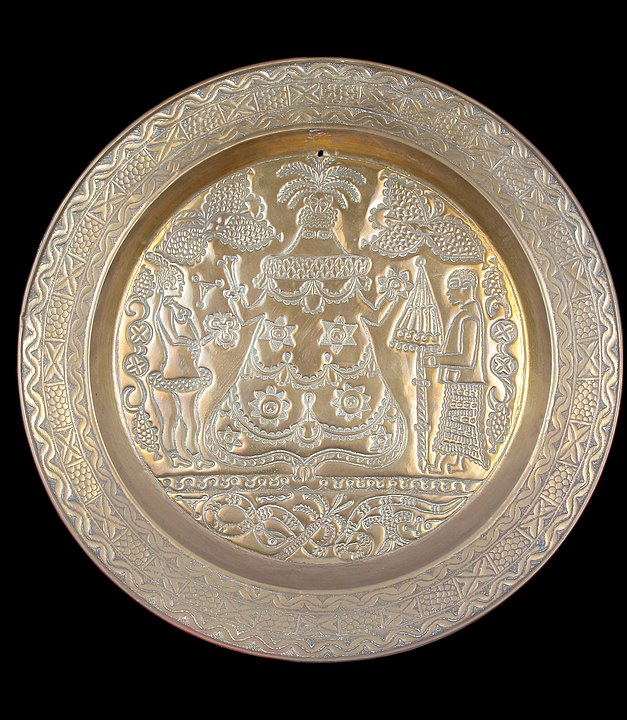
There were many grades in which individuals in Ekpe could attain with the leading one being the Nyampke class. The first four levels below Nyampke are as follows:
- Ebunko
- Abooko
- Makaira
- Bakimboko
These levels soon increased to around ten around 1820-1840 so that people at the lower ranks of society could join and social tensions between poor freeman, slaves and the upper echelon of the society could be eased. In addition, the top-notch classes of Ekpe always sponsored extravagant festivals for the whole community to show that indeed, they were wealthy. Much was done for their hard work of procuring moniez into the society & the huge amount of sums they paid so they could remain in their upper echelon of society. We can thank the palm oil profits earned before/after British abolition of the slave trade for that. There were many grades or levels so high only those with connections of founding family prestige could afford to pay their way into these ranks.
Many of these new initiates, (hungry bachelors looking for position in society) served as runners, those who would be the enforcers of law in society. Antera Duke, a prominent member of the Nyampke class who wrote a diary detailing Efik society, took note of these young men who were runners. They were called Wowo Egbo men in Antera Duke’s diary. This derives from “wara” in Efik, which means to be fast or speedy. These runners would go around the community and report any wrong doings to their leaders. If one was found to be at fault of violating societal rules, the society could seize the property & goods of said person. This was done with the president making legally binding decisions with the second grade, below the vice president(okpoho) ready to put a stamp on them. Europeans particularly liked this system because it meant that debts would be paid through this judicial process and actually made the goods left on credit much cheaper than usual. Some European traders bought their way into the society as well, many even attaining Nyampke status. This was further exemplified by the British having a fear of having Ekpe “blown on them” as it could entail punishments like fines, flogging or even death.
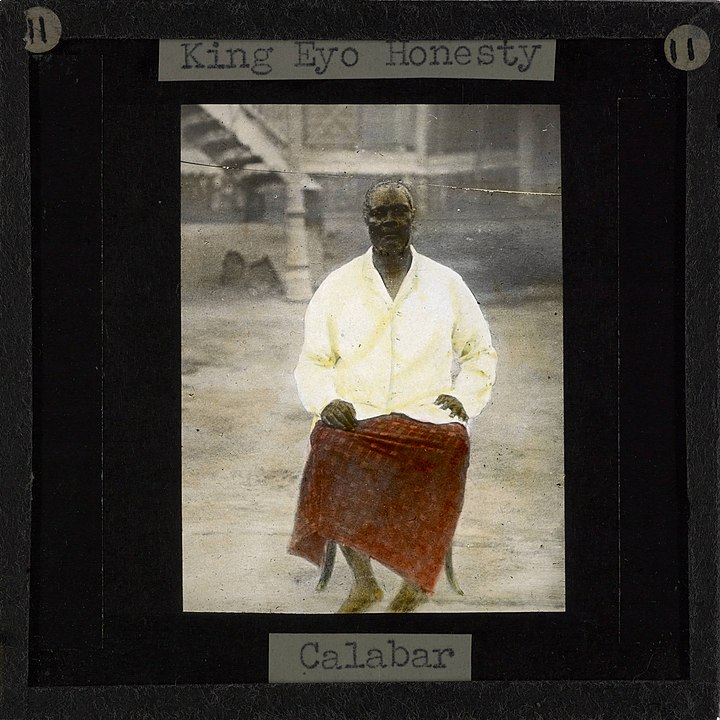
Forms of Ekpe made their way across the Atlantic Ocean when there was an increase in enslaved persons going to Cuba after the 1800s This can be attributed to increased French/Spanish presence when the British abolished the slave trade in 1807. The increase in enslaved persons leaving from Igbo, Ibibio, Efik and Ejagham areas made sure the offshoot Abakua fraternity was formed there in 1838. The offshoot fraternity was an amalgamation of peoples coming directly from this area, with many of those principally enslaved being Moko men instead of the usual large representation of Igbo women. They spoke Isuama Igbo first but then changed it to fit the dialect of Usagare. These Moko men were a part of a three-way lineage called Efi(Efik), Efo (Efut) & Oriu (Oron). Named after Abapka, or the term for the Qua(Ejagham) peoples living near them, many of the same practices came to roost in today’s Cuba.
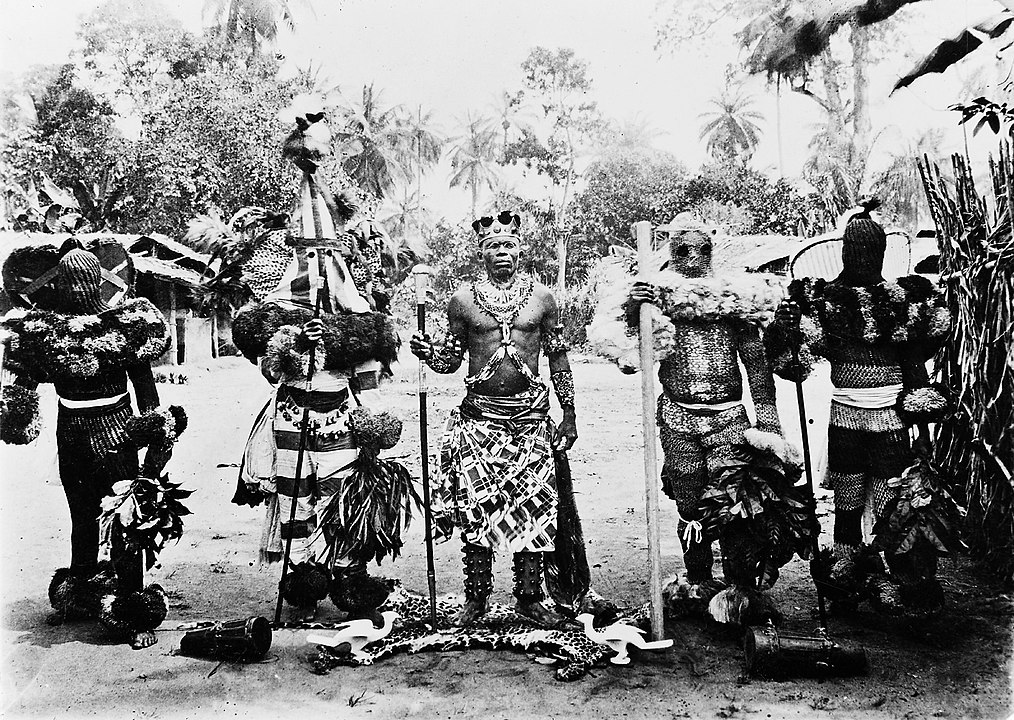
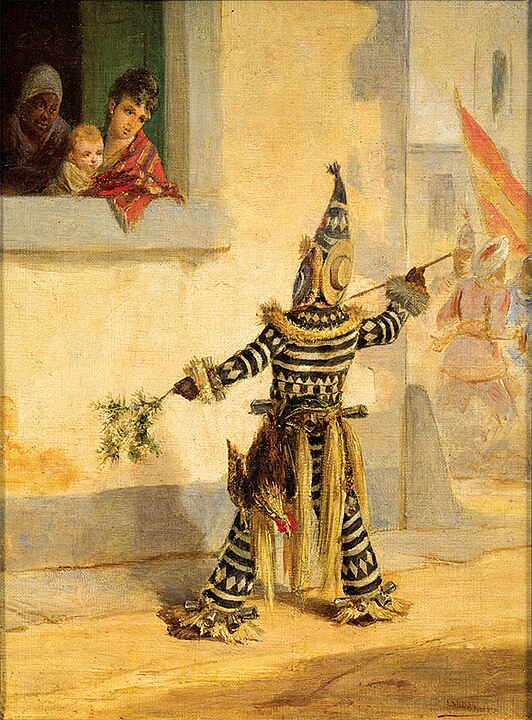
Like back home, masquerades were a huge part of the festivities and freedom fighting that took place in 1850’s Cuba. In these societies, Eyamba is both in the Ekpe and Abukua fraternities, where Eyamba is the head of the lodge and presides over all affairs. Ireme is also another word that transferred across the pond as it derives from the word ndeme, which means any type of spirit contained within the bodies of water. It also kept its top-secret nature, even to this day, as Joey Diaz remarked during a Joe Rogan podcast episode. Nonetheless, Abukua fraternities were open to cultural influences from other African peoples and actually syncretized with Bakongo rhythms to produce the Cuban genres son and rumba. During the 1920s and 1930s when Cuba was gaining more prominence with their own Afrocubanismo movement, jazz was becoming popular and musicians like Julito Collazo, who was an Abakua, made sure their sounds influenced the popping genre of his time.
The Abakua and the Ekpe society of Calabar met up actually in a convention in the United States around 2003. During that meeting, the governer of today’s Calabar state (in Nigeria), invited the Abukua fraternity to come to the state. The Obong of Calabar(who was also present), emphasized the message, proclaiming the Cuban Abakua members as “his children”. The following year, they made that visit and quickly saw that the two secret societies(Ekpe & Abakua) were basically the same. They took some lessons from their brethren and made do with their unforgettable visit back to forebearer of it all. Distance & sight means nothing if the spiritual connection is unwavering.
